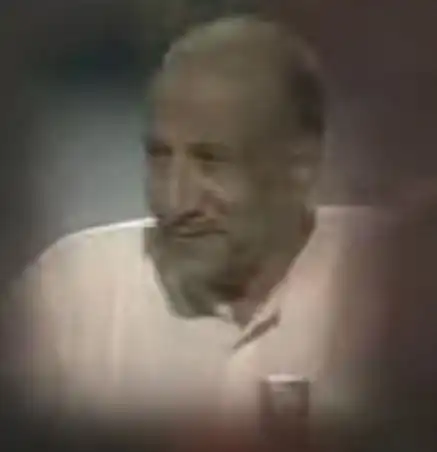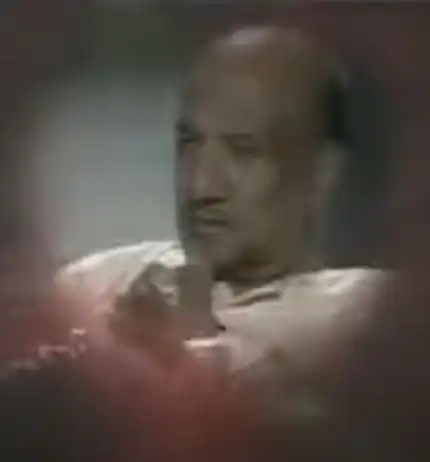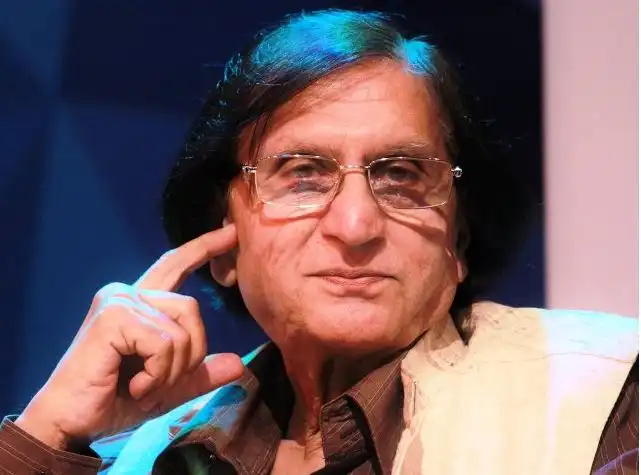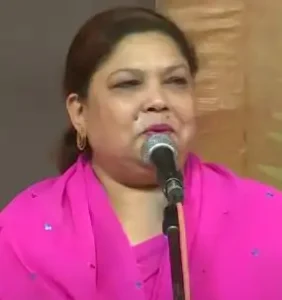![]()
USTAD DAMAN | AGE | POET | POETRY ON PARTITION | DEATH

Ustad Daman, whose birth name was Chiragh Deen, was a well-known poet from Pakistan who made significant contributions to Urdu and Punjabi poetry. He was born on September 4, 1911, in Lahore, Punjab, British India, and passed away on December 3, 1984, in the same city.
USTAD DAMAN’s Background Information:

- From a young age, Ustad Daman had a passion for writing poetry and was heavily influenced by his grandfather’s Sufi teachings. He received his early education at a local mosque and then went on to attend a government school in Lahore. However, he found that his interest in poetry was stronger than his inclination for formal education, and he turned his focus to his writing instead.
- Daman’s poetry was deeply entrenched in the cultural and social values of Punjab. His poems often reflected the struggles of the common man and the injustices faced by the working class. He was a strong advocate for social justice and equality, and his poetry conveyed a sense of empathy and compassion for those who were marginalized in society.
- Ustad Daman’s work was also heavily influenced by his experiences during the partition of India in 1947. His poems during this period dealt with the themes of loss, displacement, and the trauma of migration. His poetry was seen as the voice of the people, expressing their collective pain and grief.
- Despite facing various challenges and obstacles in his life, Ustad Daman remained committed to his craft and continued to write poetry until his final days. He was a regular participant in poetry gatherings and mushairas, where he would recite his work to an attentive audience.
- Ustad Daman’s contributions to Urdu and Punjabi poetry were widely recognized, and he was jailed many times by its government. “Amongst his admirers was Pandit Nehru. He offered Daman Indian citizenship. Daman thanked him but stated clearly that he would never leave Lahore.” (source: “DeccanHearld“)
- Today, Daman’s legacy lives on, and his poetry continues to inspire and connect with people across Pakistan and beyond. His work remains a significant part of the cultural and literary heritage of Punjab, and he is remembered as one of the most iconic poets of his time.
USTAD DAMAN’S DATA TABLE:
| Field | Information |
| Full Name | Chiragh Deen aka Ustad Daman |
| Date of Birth | September 4, 1911 |
| Place of Birth | Lahore, Punjab, British India |
| Date of Death | December 3, 1984 |
| Place of Death | Lahore, Punjab, Pakistan |
| Nationality | Pakistani |
| Language | Urdu and Punjabi |
| Education | Local mosque and government school |
| Profession | Poet and writer |
| Famous works | Kulyat-e-Daman and Dard-e-Be-Dam |
| Notable Awards | Pride of Performance Award (1983) |
| Spouse | Unknown (wife’s name not available) |
SOME LESSER KNOW FACTS ABOUT “USTAD DAMAN”

- Ustad Daman was born in Lahore, Punjab in 1911 as Chiragh Deen, the son of a carpenter.
- He was a prominent poet who wrote about social and political issues, criticizing the British Raj and the post-independence governments of Pakistan. He was jailed by his own government.
- Ustad Daman was also a political activist and a member of the Communist Party of Pakistan, participating in various protests and movements.
- He was imprisoned multiple times for his political activism and poetry, including two years in the 1950s and six months in the 1970s.
- In addition to his serious work, Daman was also known for his humorous poetry that poked fun at societal norms and traditions.
- He had a deep appreciation for nature, especially the Changa Manga forest near Lahore, which he frequently visited and wrote about.
- In his personal life, Ustad Daman led a simple life, was married with four children, and was known for his kindness and humility towards others.
- Ustad Daman passed away in 1984 at the age of 73, and his funeral was attended by thousands of people, including politicians, artists, and poets who came to pay their respects to the beloved poet.
“CONCLUSION”
In summary, the biography of Ustad Daman offers a captivating portrayal of a revered poet. Daman‘s verses, brimming with profound wisdom and insightful social commentary, have garnered immense admiration, solidifying his position as a prominent literary figure. His words possess a timeless essence that transcends linguistic and cultural boundaries. Daman‘s remarkable ability to articulate the struggles and aspirations of the common people through his poetry has established him as an influential voice in society. His literary contributions serve as a testament to the enduring power of art to reflect and ignite transformative change. Daman‘s enduring legacy will continue to inspire generations, leaving an indelible mark on the literary and cultural fabric of society.












